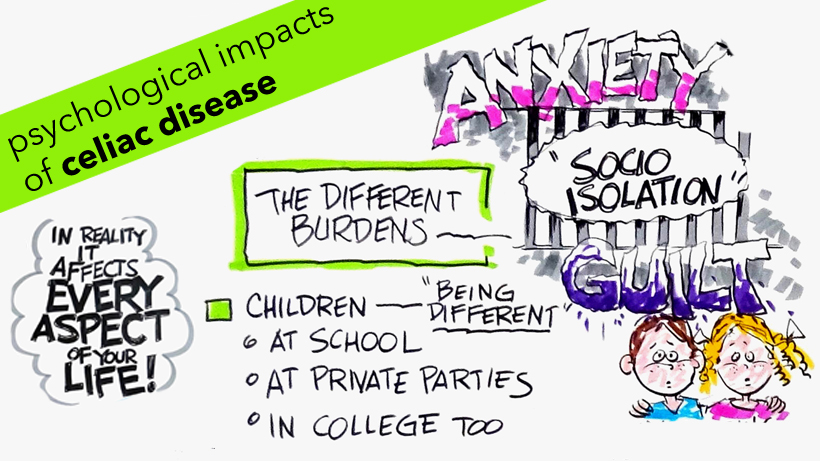The Beyond Celiac response to a recent disheartening Super Bowl commercial from Party City making fun of those who eat gluten-free.
 When children with celiac disease celebrate their birthdays, they often get their “Frozen” napkins and their “Iron Man” cups from Party City. In a few weeks, they likely would have had their gluten-free Valentine’s Day cookies on heart-decorated plates from the New Jersey-based party store.
When children with celiac disease celebrate their birthdays, they often get their “Frozen” napkins and their “Iron Man” cups from Party City. In a few weeks, they likely would have had their gluten-free Valentine’s Day cookies on heart-decorated plates from the New Jersey-based party store.
So, it’s particularly cruel that Party City conceived of and aired a commercial that made fun of not only the gluten-free diet, but also bullied the person that the party-throwers knew would need it (Tina), calling her “gross.” The gluten-free diet is the only treatment for the serious symptoms of celiac disease. These symptoms include debilitating stomach pain that can cause children to miss the very events where Party City goods might be found. On top of that, the company ran the ad on Nickelodeon, a network for children’s programming, and also during the Kid’s Baking Championship on the Food Network.
When word got out in the celiac disease community, response was quick, loud and decisive. Gluten-free social media, including notable twitter contributors GlutenDude and Celiac and the Beast threw considerable force behind an effort to get Party City to remove the ad. The community can take credit for getting the company to do just that (though the company apologizes for being “insensitive to people with food allergies”, demonstrating that they still have a way to go in building a true understanding.) Further, they have pledged to donate to celiac disease research.
Party City’s reaction is the best we could hope for, given the damage that was already done. We hope all companies get the message that making fun of the gluten-free diet isn’t funny at all. And we agree with parents of kids with celiac disease and other patients who noted this should never have happened in the first place.
Companies’ ads are vetted and reviewed by many people before they go from the drawing board to the TV screen. The fact that no one said, “This is wrong. This is hurtful. This is not funny,” demonstrates that celiac disease is not taken seriously. Try to picture an ad that similarly made fun of a person with diabetes who has to take insulin or person with cancer who is undergoing chemo. It would not and should not ever happen.
Make no mistake. Celiac disease is serious. In some cases, it’s fatal. And yet, our disease is recognized only as a function of its only treatment, the gluten-free diet, which is often insufficient and incomplete. Celiac disease has gone from being virtually unknown to being the brunt of jokes about its only treatment, as quickly as Party City could blow up the inflatable snack stadium it was so ineptly promoting in the ad.
It’s time for that to change. And the Party City response shows celiac disease patients can and should take charge of that change.
The same level of outrage that greeted the television ad should boil over about the fact that celiac disease research is significantly under-funded by the National Institutes of Health. A recent study found that celiac disease consistently gets the least amount of money of six digestive diseases.
Consider that when the celiac disease community got loud about the Party City ad, a retraction took us from a negative development to point zero. But the company’s stated commitment to fund research moves into positive action. Imagine the progress we could generate if we as a community consistently lifted our voices about other inequities faced by those who have celiac disease.
Sometimes you realize that your power lives in unexpected places. Certainly, NIH funding for celiac disease research is more complicated than what just happened with Party City. But a lasting lesson is that the celiac disease community has vocal muscle and should use it to create change.
That would merit a real gluten-free party.
To support meaningful progress for the millions of Americans living with celiac disease, please consider a contribution to Beyond Celiac to drive treatments in addition to the gluten-free diet and ultimately find a cure for celiac disease.
Opt-in to stay up-to-date on the latest news.
Yes, I want to advance research No, I'd prefer not to